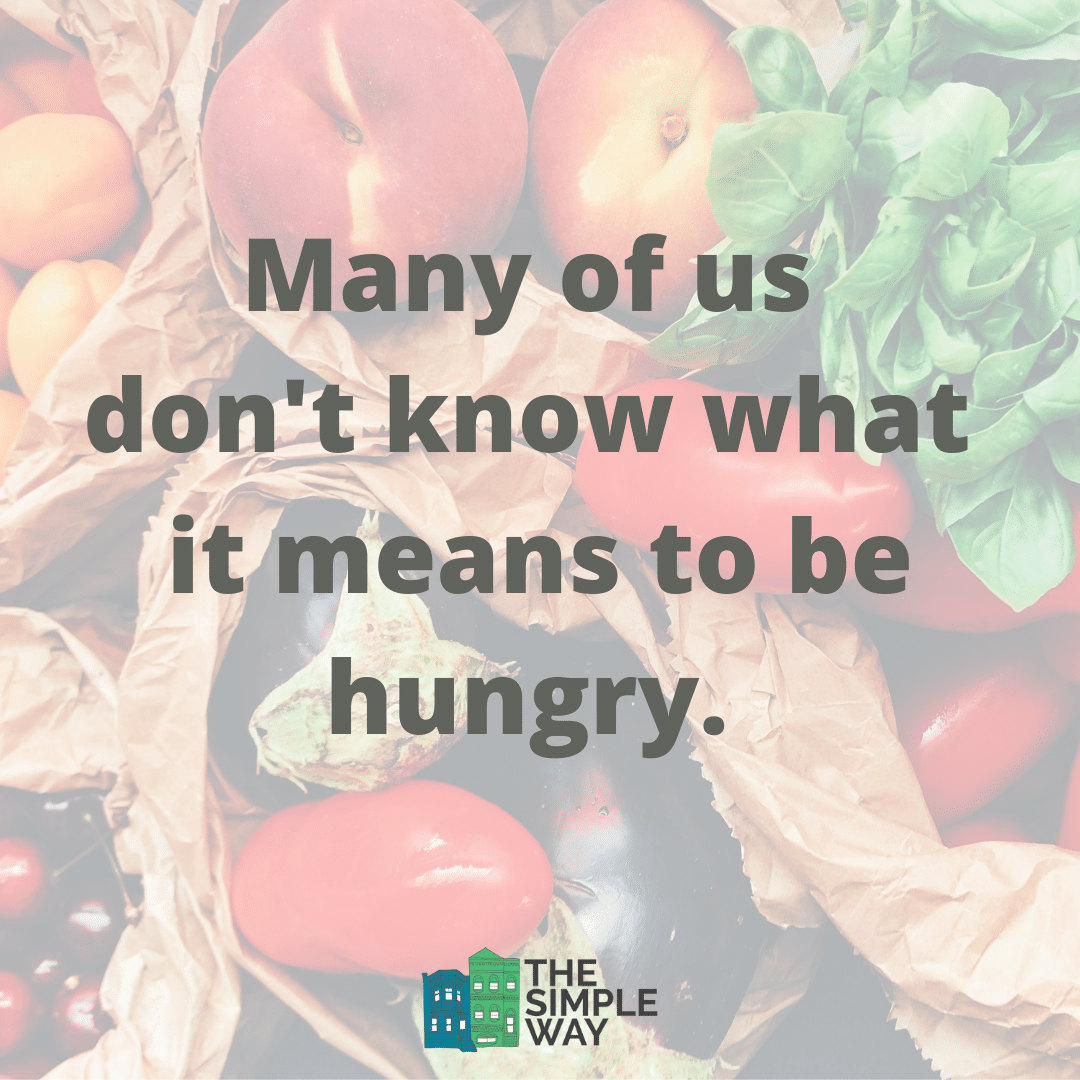Many of us don’t know what it means to be hungry.
We don’t have to think twice about stocking our pantries, ordering online grocery delivery, or even indulging in the occasional take-out meal once or twice a week. We plan out our dinners, one or two weeks ahead of time. We host freezer meal parties and stock the extra freezer in the garage with extra meals for those times when we’re “just too tired to cook.”
What does food security mean to you?
But as we’ve been exploring over the last couple of weeks, hunger is real to many of our neighbors, both locally and globally. Food security is not always a reality.
According to the Food and Agriculture Organization (FAO), 800 million people live with food insecurity worldwide. They lack “physical, social and economic access to sufficient, safe and nutritious food that meets their dietary needs and food preferences for an active and healthy life.” This equates to nearly one in nine people on our planet. In developing countries, the numbers are even higher, where an estimated 13.5 percent of the population experiences malnutrition and undernourishment.
We talked about it on a local level in last week’s blog post, when we were reminded that a full-time, minimum-wage job still often doesn’t allow for many of our neighbors to pay for rent and utilities and put food on the table. Those who experience food insecurity are forced to make daily, weekly and monthly decisions about where and how to use their money, notes Chuck Haren, program director at Plenty International.
“They have a myriad of costs to deal with. How do you choose?” Haren stated in a podcast interview.
Sometimes choice is the greatest privilege of all.
And when our local and global neighbors are the direct recipients of unjust systems that benefit some but not all, parents have to choose between putting nutrient-dense food on the table and keeping the heater on in below-freezing weather. Families have to choose between paying the rent and skipping a meal.
But if we belong to each other, then we belong to one another in suffering and in joy, in plenty and in want, in every hour of every day.
As the late Desmond Tutu eloquently said, “If we could recognize our common humanity, that we do belong together, that our destinies are bound up in one another’s, that we can be free only together, that we can be human only together, then a glorious world world come into being where all of us lived harmoniously together as members of one family, the human family.”
And isn’t this what we want? Isn’t this who we are?
We invite you to journey with us as we continue to explore these questions, as we seek to do small things with great love, together.


0 Comments